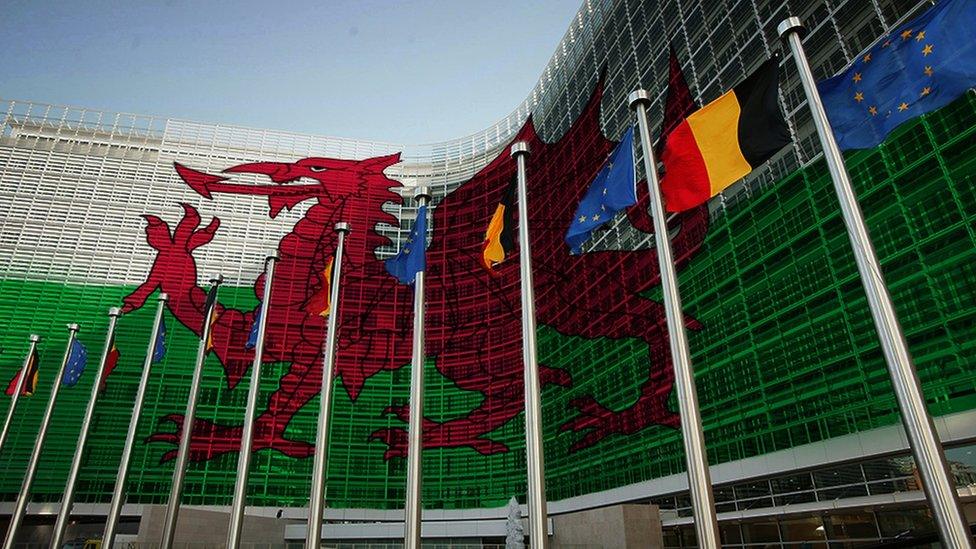Brexit: UK rep 'assumes' free trade with EU will continue
- Published
Ken Skates says the implications of no-deal Brexit are "not very pretty"
A Welsh minister has been told UK trade officials are working on the assumption there will be no tariffs with the EU after Brexit.
But Julian Braithwaite, UK ambassador to the World Trade Organization, said his team could "accommodate" changes if the UK left without a trade deal.
Economy Secretary Ken Skates travelled to the body's Geneva headquarters to seek assurances on Welsh interests.
Mr Skates said the implications of a "no deal" scenario were not "pretty".
He highlighted steel, technology and energy as key priorities for Wales in trade negotiations.
Earlier this month, Prime Minister Theresa May said the UK must prepare for "every eventuality", including not reaching a trade deal with Brussels.
While the UK remains a member of the European Union, tariffs are not currently charged on goods and services exported from Wales and the UK to other EU nations.
If no deal was reached during the Brexit negotiations, then the UK and EU would operate a trading relationship under World Trade Organization (WTO) rules.
Under those rules, the EU would have to impose tariffs on goods and services from the UK at the same rate it charges to other countries - between 2-3% on many industrial products, 10% on cars, and between 20-40% on some agricultural products.
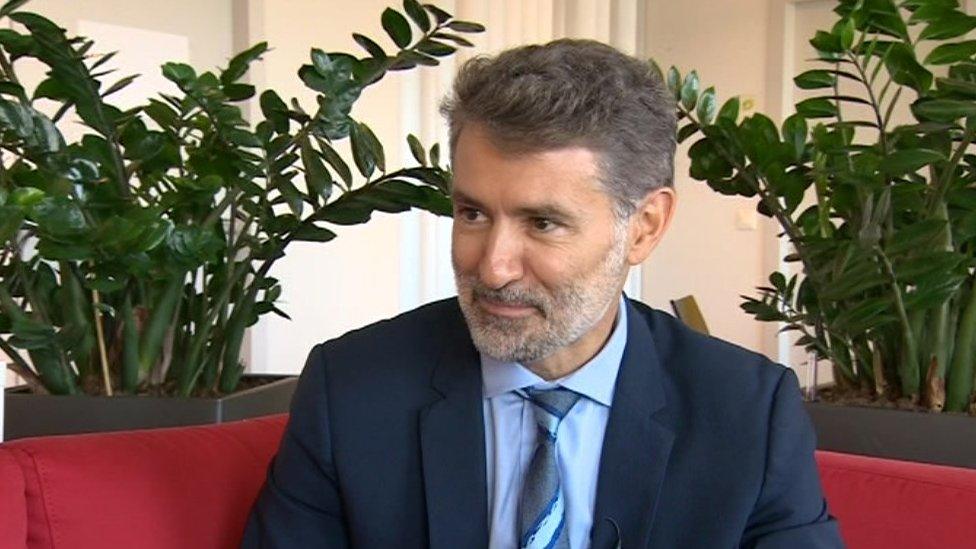
Julian Braithwaite said there was a "lot of interest" on both sides of the channel to maintain tariff-free trade
Mr Braithwaite, UK Ambassador to the WTO, said he thought there would be "a lot of interest on both sides of the Channel" to maintain tariff-free trade between the UK and the EU.
"What we're doing here at the moment assumes that that would be the outcome," he told BBC Wales.
"If we needed to accommodate EU27 trade into the UK without a free trade agreement between the UK and the EU we would be able to do that as well," he added.
Despite being a founding member of the WTO in 1995, the UK's trading commitments to other members have, to date, been done as part of the EU.
In order to minimise disruption, the UK intends to replicate the EU's trading commitments with countries outside the Union, which includes the imposition of tariffs on goods and services as well as the imposition of quotas on how much of a product can be imported to the UK.
Setting import quotas, according to Mr Braithwaite, "is perhaps the most sensitive issue in this transition".
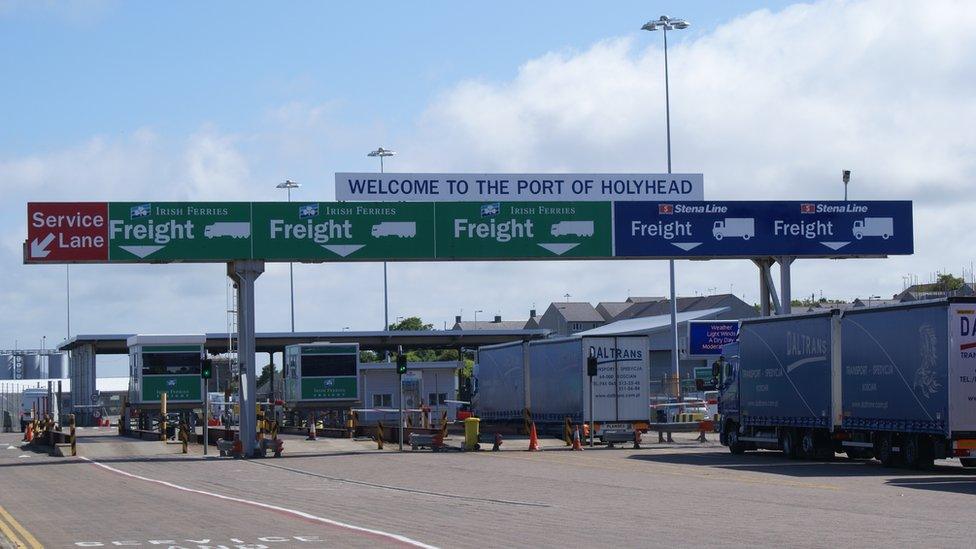
Ports such as Holyhead could be affected by any changes to tariffs after Brexit
After meeting the ambassador, Mr Skates visited Alan Wolff, deputy director-general of the WTO.
The economy secretary aimed to use the visit to ensure Wales' interests were "fairly represented" at the WTO during the Brexit process.
He repeated the Welsh Government's opposition to a "no deal" Brexit.
"We've been working with academics, we've been working in particular with Cardiff Business School, looking at the implications of a 'no deal' scenario and it's not very pretty," Mr Skates said.
First Minister Carwyn Jones has previously claimed that farming in Wales would "fall off the edge of the cliff" if the UK had to rely on WTO rules after Brexit.
But Brexit-supporting economists, including Prof Patrick Minford of Cardiff University, have argued that the UK should unilaterally scrap all tariffs on goods and services from the EU and other nations in a bid to bring down all barriers to trade.
Later on Tuesday, Downing Street said the UK government will "intensify" its engagement with the Welsh and other devolved governments over Brexit in the coming months.
The cabinet was told the "successful implementation of Brexit" would require work on the part of both businesses and devolved administrations.
- Published30 October 2017
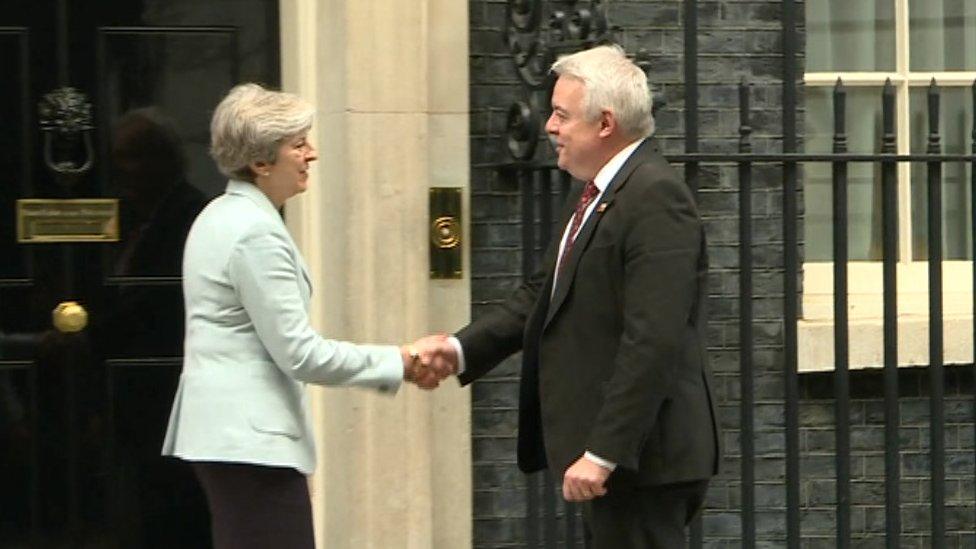
- Published27 October 2017

- Published25 October 2017
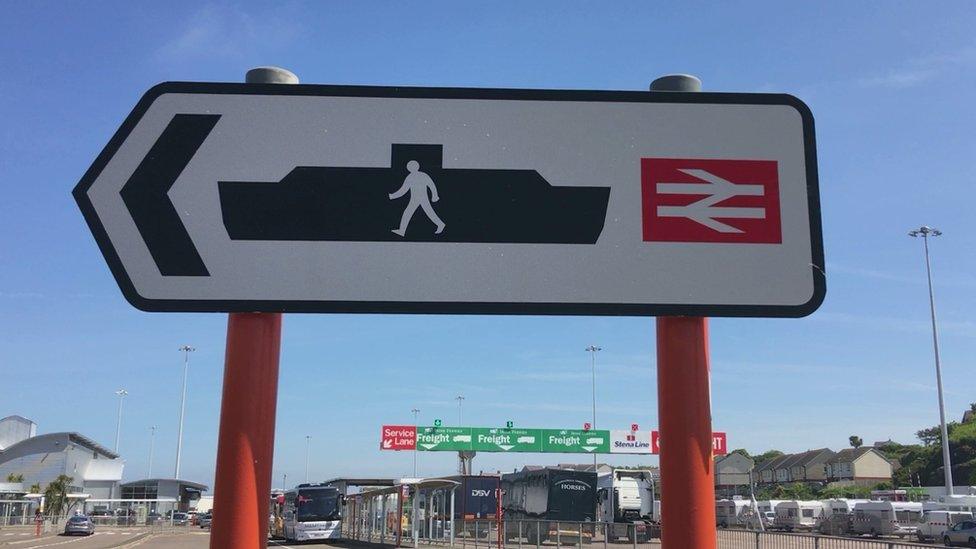
- Published20 August 2017
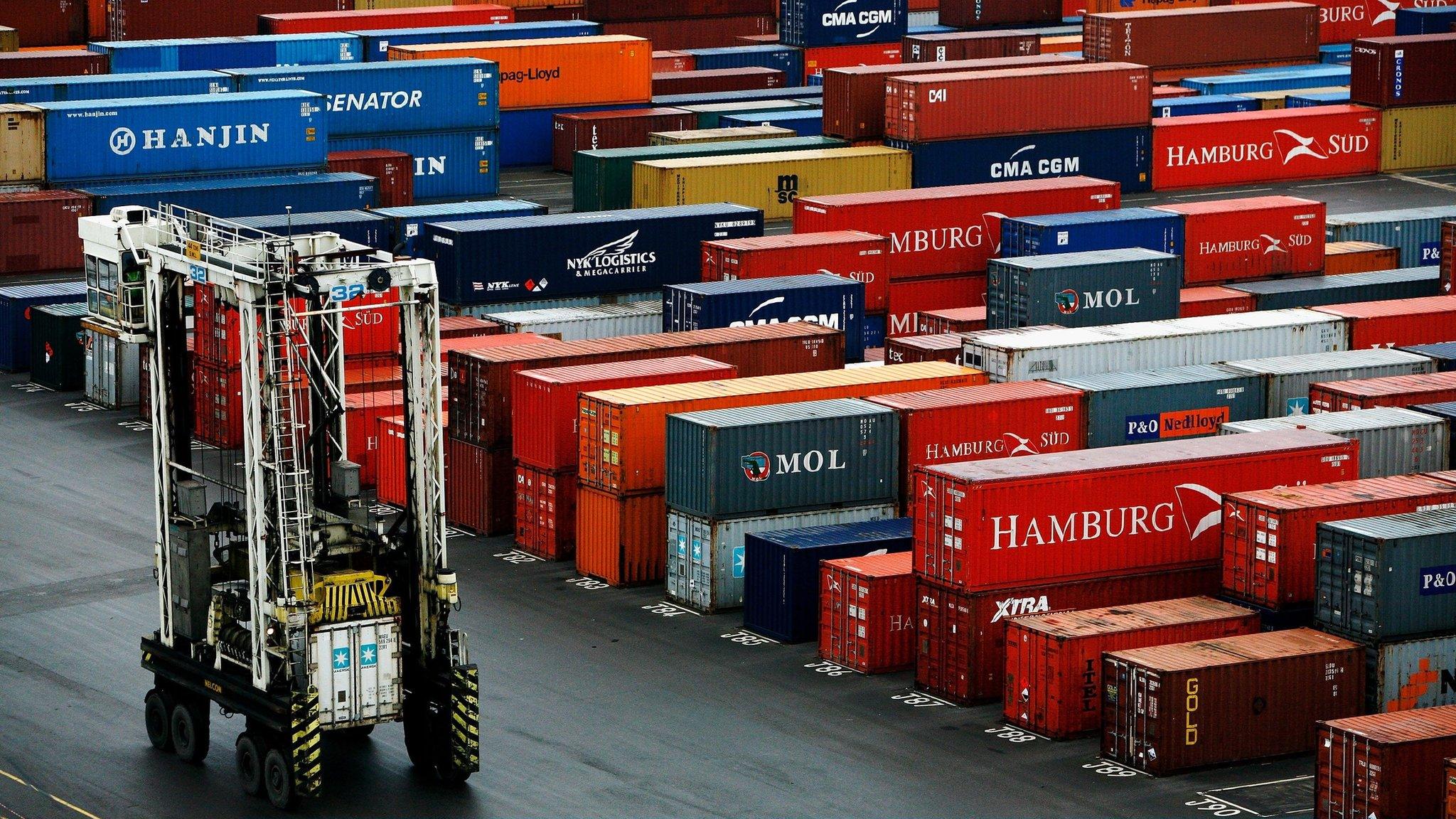
- Published24 September 2017
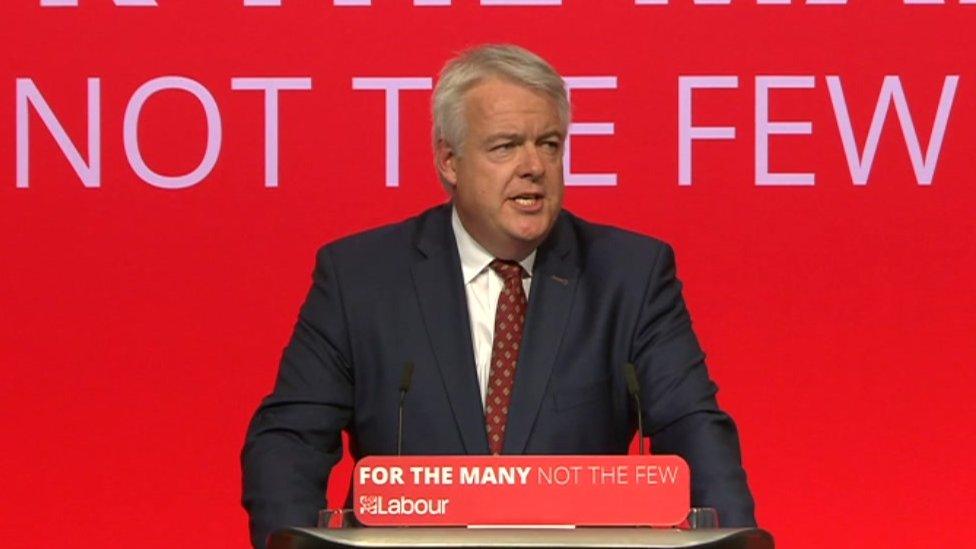
- Published11 October 2017
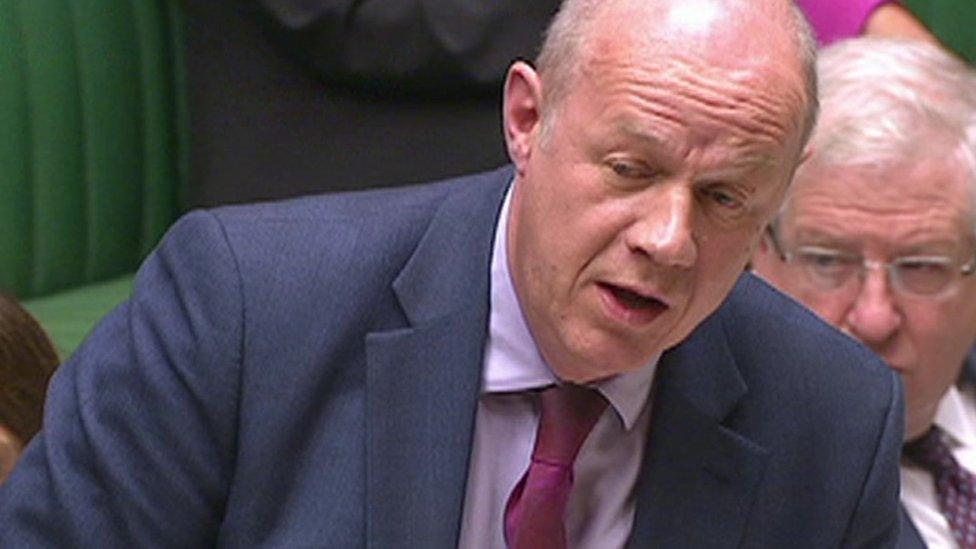
- Published9 October 2017
